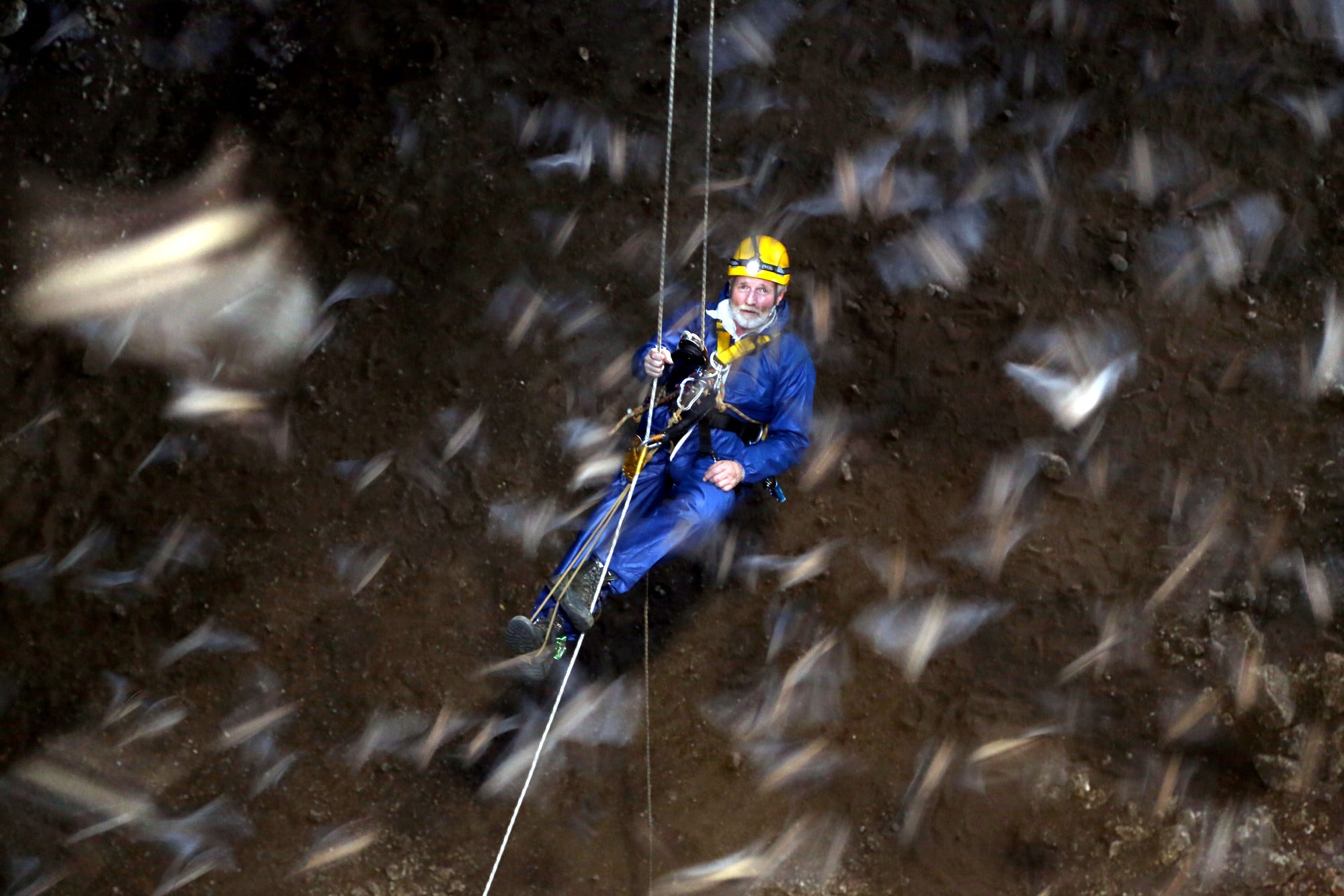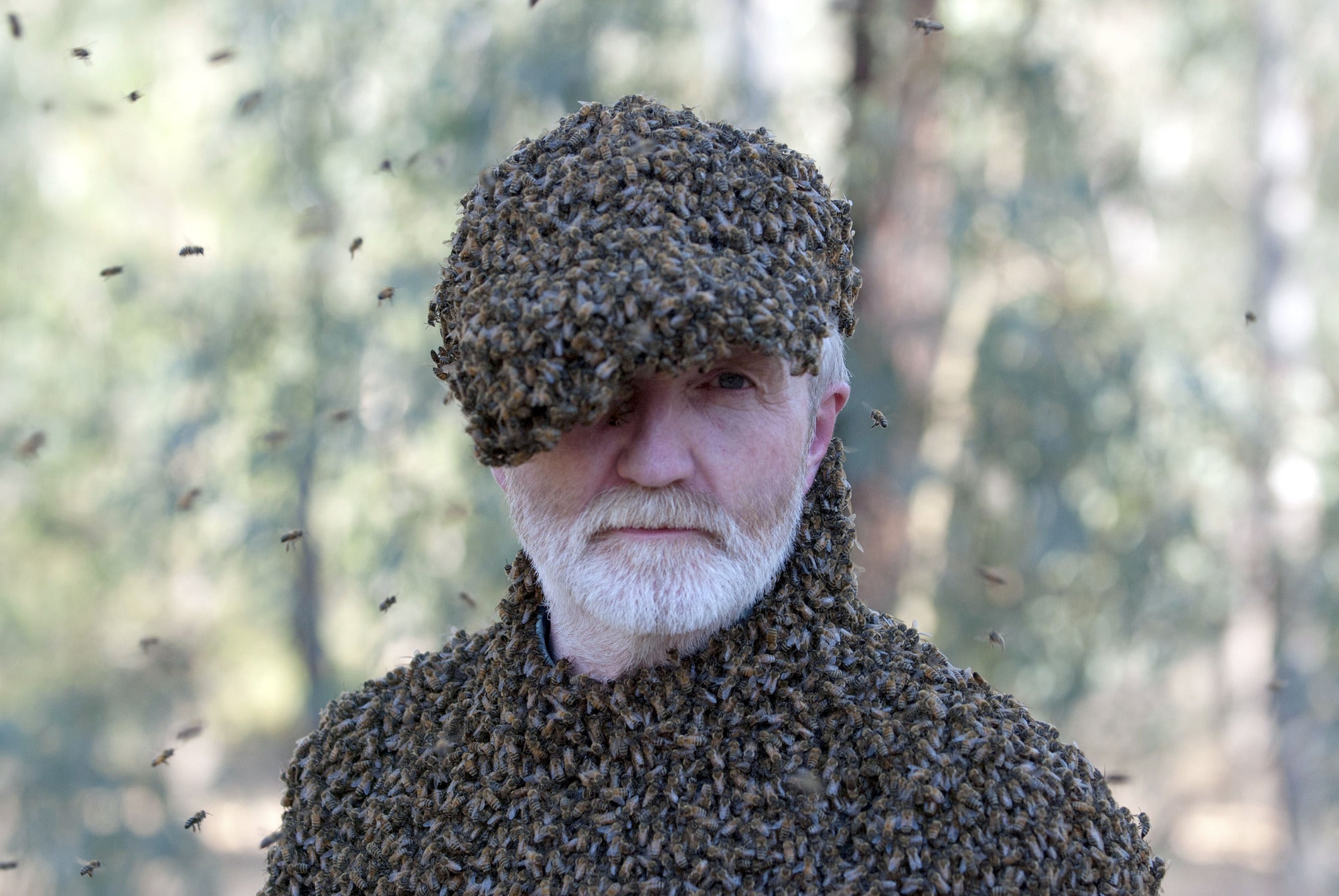TV review - Ultimate Swarms (BBC1) is bee good, shame about the soundtrack
Your support helps us to tell the story
From reproductive rights to climate change to Big Tech, The Independent is on the ground when the story is developing. Whether it's investigating the financials of Elon Musk's pro-Trump PAC or producing our latest documentary, 'The A Word', which shines a light on the American women fighting for reproductive rights, we know how important it is to parse out the facts from the messaging.
At such a critical moment in US history, we need reporters on the ground. Your donation allows us to keep sending journalists to speak to both sides of the story.
The Independent is trusted by Americans across the entire political spectrum. And unlike many other quality news outlets, we choose not to lock Americans out of our reporting and analysis with paywalls. We believe quality journalism should be available to everyone, paid for by those who can afford it.
Your support makes all the difference."Swarms are extremely powerful," the zoologist George McGavin told us in Ultimate Swarms. They can be deadly too, he continued: "By joining together, even the simplest creatures can achieve the impossible." Yeah, we know that, George, we've seen Hitchcock's The Birds, and some of us still remember that naff crop of films about insect invasion that were the equivalent of zombie movies in the late 1970s – swarms of bees, ants and spiders working with a cunning collective intelligence to overwhelm mankind.
Then, as another opening gambit, Dr McGavin got himself down to southern California (the land of the honeybee, apparently) and enticed a swarm – thousands upon thousands of bees – to land on him after luring them in with droplets of pheromones that gave off the same scent as the queen bee. In a very disconcerting flashback to the insect invasion movies, a solid architectural structure of bees formed a black, vibrating ledge across McGavin's face, and wrapped themselves around his arms, legs and chest. "It's like wearing a wet shirt," he told us. "It's incredibly unsettling." So was watching him get them all off in one big shake of the body, when they dropped off him like pennies.
There were plenty of these moments, nature's spectacular air and floor shows: billions of mayflies in Texas, thousands of red crabs on a volcanic outcrop in the Indian ocean, resembling fast-moving rain clouds across the skies or giant shadows shifting across the land. There was phenomenal footage of Mexican free-tailed bats flying in biblical proportions, a blizzard of locusts and a fountain of silver carp jumping out of the water, but what really took this documentary to new ground was McGavin's association between swarm behaviour, human replication and artificial intelligence.

When we act like a swarm – in other words, when we "think collectively" – humans, like their natural world counterparts, often achieve better results than they would as individuals, though of course mob mentality can also lead to chaotic disorder (in football stadiums, in street riots, just like the water buffalo that panic when a cheetah attacks them). Simple experiments found that an ordinary crowd guessing the weight of something results in a far more accurate estimate than a single expert's. Contestants on Who Wants to Be a Millionaire? should note: "asking the audience" wins over "calling a friend", however big-brained that friend may be.
The big surprise was the relationship between collective decision-making and individual action in different swarms. Some infected others with their contagious emotions and thoughts so that the swarm thought as "one mind" in a united response (think of the panicking water buffalo, for instance), while in other swarms such as leafcutter ant colonies, there were no leaders as such, and each ant did their own thing to make the swarm run smoothly. Bees, while they have a queen, delegate "house-hunting" duties to scouts who go out to find a nice, south-facing hive.
McGavin's point was not that we should observe group animal behaviour for the sake of good television, but that we can – and do – learn from it. We even imitate it, either in our organisation of airports, for example, when mass passages of travel replicate the smooth running of migrating swarms, or in artificial intelligence. Robots, he said, were now using "swarm intelligence", as was airport computer software.
The only fly in the ointment in this weird and wonderful hour was the dance music that sometimes accompanied the sight of these swarms. There was no need for it; the magnificent, adrenalin-fuelled formations would have quickened the heartbeat even in pure silence.

Join our commenting forum
Join thought-provoking conversations, follow other Independent readers and see their replies
Comments